‘Legra’
‘Legra’ is a body of work that attempts to dive deeper into the landscape of Leicester, to see how myths are present in our collective consciousness and surrounding environments. The mythological landscape has long since been within our memories, changing and flowing with different cultures and retellings. From children, we are told stories of these mythological beings, often monsters, to teach us about morals or to scare us into complying.
‘Legra’ was produced in spring 2020. It is comprised of a mixture of liquid photographic emulsion and inkjet prints, drawing upon a long history of hand colouring photographs. The prints have been painted on with watercolours, attempting to blur the lines between the mediums and their disparate relations to mythology and reality.
Special thanks to the Record Office for Leicestershire, Leicester and Rutland for some of the archive material used within this work.
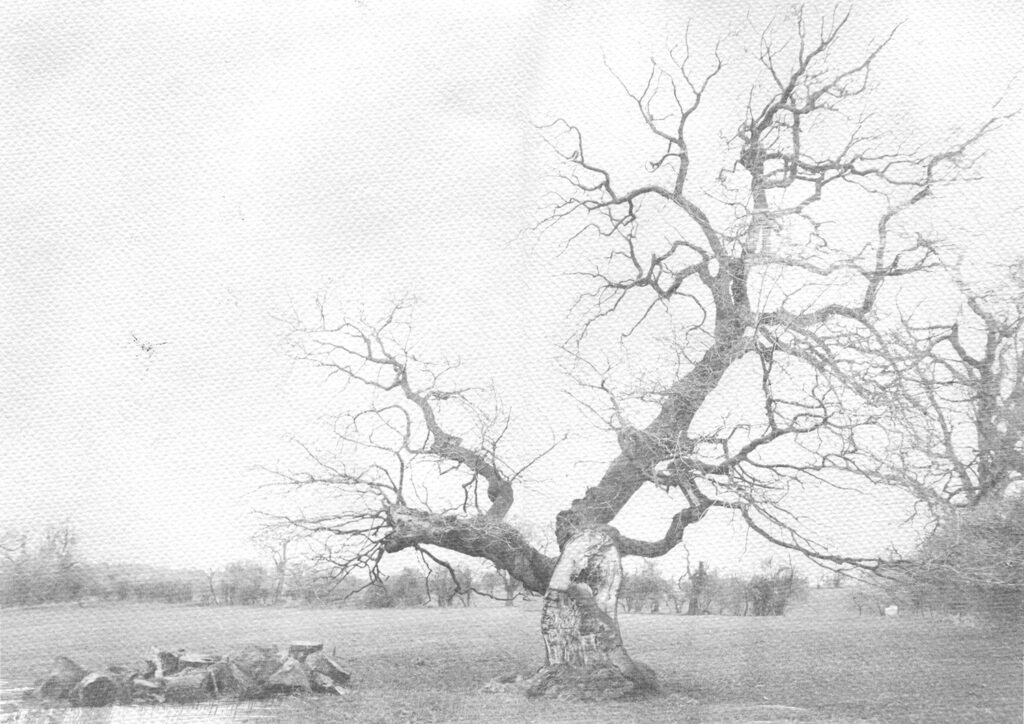
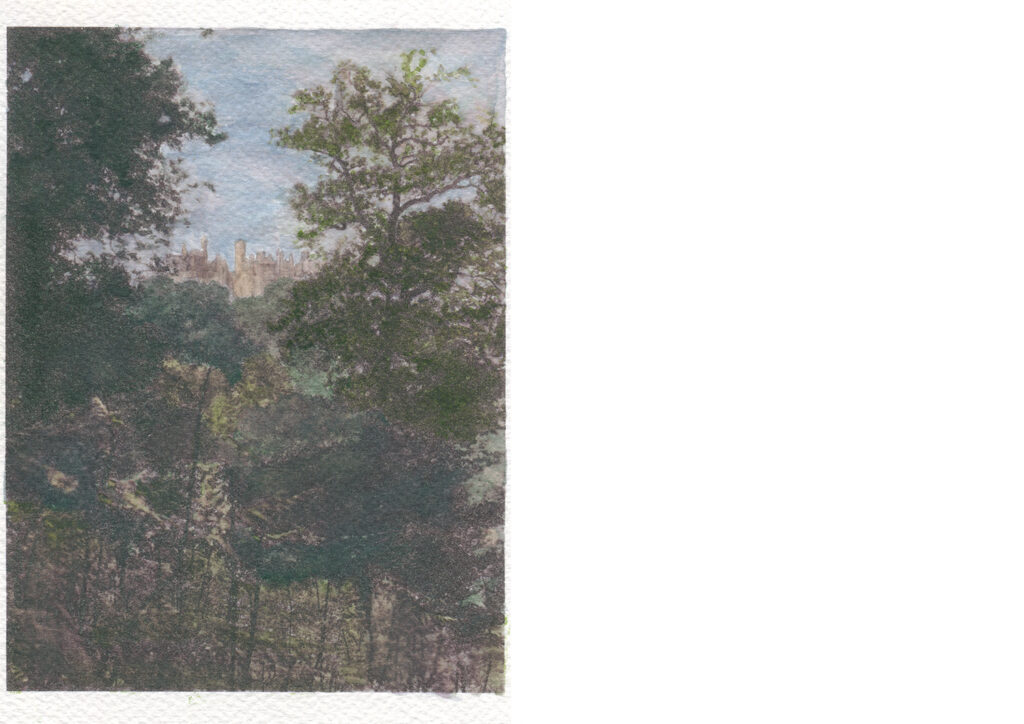
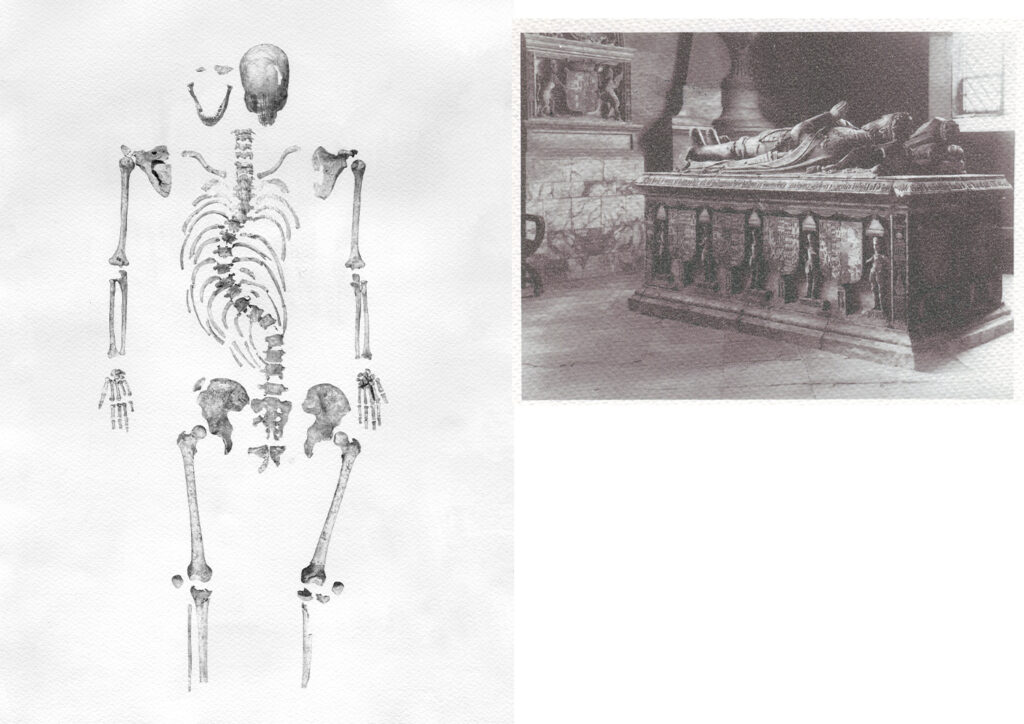
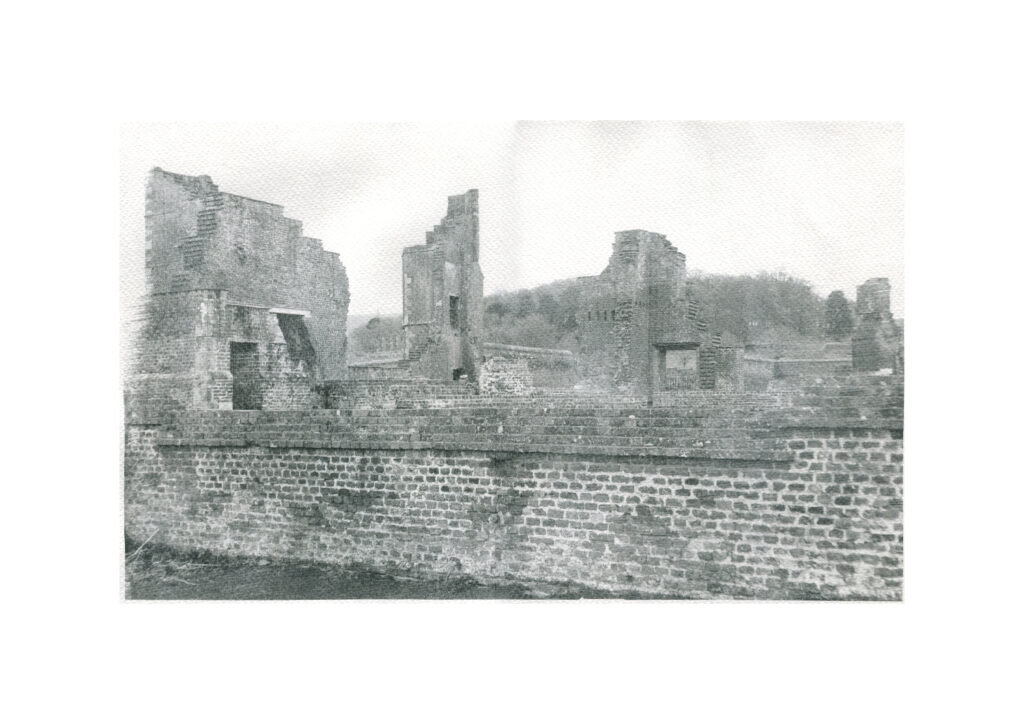
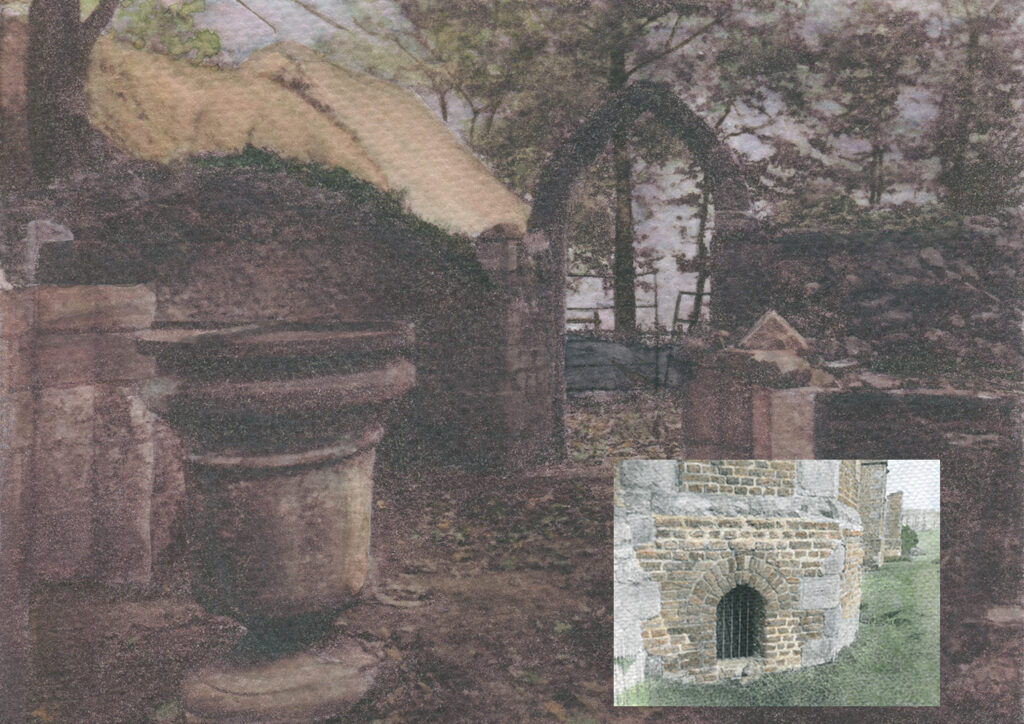
The story begins with a girl and her two sisters,
Living with their father on his plentiful lands
With all of the city lending their working hands.
The girl was banished by her father to live abroad,
While the two sisters committed a fraud,
Leaving their father as he fought and pled,
To escape the sister’s tyranny, he finally fled.
The girl accepted him with open arms,
And beat the pair of sisters with all of her charms,
She regained her father’s land and restored it anew
Taking what was hers and long overdue.
The fighting impacted their father, who fell ill
And afterwards died on his land near the water mill.
The girl buried him in the river, its richness
Birthing the once ancient settlement,
A final resting place for the aristocratic father,
The daughter inheriting all of the land.
Returning from city life, to one of labour,
To the countryside to repay a favour.
She met a man whom she was forbidden through family strife to see,
Yet they both pretended to be carefree.
Like Romeo and Juliet they were star-crossed,
With not poison to leave behind,
But two trees that combined,
An ash and an oak a reminder of what was lost.
Now a woman she became bitter,
Turning to the old ways and dubbed a sinner,
Practicing old religions, lost centuries ago
To the progressive human ways, that nature will outgrow.
She foretold the death of a powerful leader
And was deemed a wise woman or witch,
Yet again having to escape from those who were powerful and rich;
For they rejected tradition while she became it.
Hunted by dogs and guns and men,
Through the rocky hills and skeletal trees
Where she could only find shelter within an oak tree,
The frigid air threatening to freeze her alive,
The night began to set, but all she could do was hide.
Within the hollow of that oak,
She decided to return to the old world,
After her resolve had finally broken.
The air had cleared, and the land was empty,
No more men on the hunt to imprison her
In the dead of night.
The forest harboured a small cave,
Clawed from limestone with what looked like rage,
This was her new makeshift abode,
Away from the settlement of brick and stone,
but near where the river flowed.
She became bitter and old,
Her skin so very cold,
Living on children who wandered by in the night.
Their skins swung in the wind, on the branch of her oak tree,
Which marked the place of death and magic,
The woman’s story became tragic.
The tunnels she built,
To the castle, the cave, and in the silt
To terrorise the dwelling she despised,
on her land it was built.
No longer a human, but a creature of anger,
Of guilt and of sin,
The woman existed no more.
The creature returned to the ancient stone,
Where it would hunt and pick at bone,
Before being slayed by those who hunted her.
Some say the woman’s ghost resides in the forest,
Pulling up in a carriage drawn by hazy horses,
To collect the life that was once hers promised,
Before she was moved against by all these forces.
Her sisters, men in power,
the old man farmer, and all of the new world,
It turned her sour.
She was hunted and demonised,
Nothing less than ostracised,
For returning to the old world which we will all someday become.